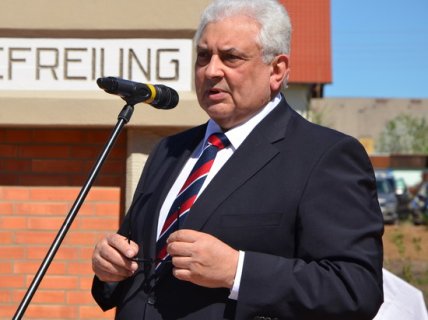The Role of the Russian-Speaking Diaspora in Germany
According to the Russian Ambassador to Germany S. Yu. Nechaev, it´s diaspora contributes to enhancing Russia's influence in a foreign environment
May 07th, 2019From 20 to 22 May in Berlin, the conference of Russian compatriots of European countries "Russian-speaking European Diasporas for Cooperation" will be held. With this occasion, the Ambassador Extraordinary and Plenipotentiary of Russia to the Federal Republic of Germany Sergey Nechaev spoke to the editorial board of the newspaper MK-Germany about the significance and importance of the Russian-speaking diaspora.
In Germany there is one of the largest Russian-speaking diasporas. According to various estimates, its number varies from 3.5 to 4.5 million people.
In Germany and in many other countries of the world, the Russian diaspora forms a fairly representative part of civil society, in which, they are successfully integrated. According to Sergey Nechaev, this demonstrates the ability of the Russians to harmoniously complement any civilizational context as a result of their adherence to human values, rich history, culture, good education and hard work.
In Germany, numerous youth, veterans, professional, literary, musical social structures and many other organizations of the Russian-speaking diaspora have been formed. Most of them are united around the All-German Coordinating Council of Russian Compatriots, which has structural subdivisions and assets in all federal states of Germany. These units contribute to the preservation of Russian culture, the support of the Russian language and traditions. They are successfully integrated into German society and are involved in the development of economic cooperation, primarily at the level of small and medium-sized businesses, and are engaged in cultural issues and education.
In recent years, several forums have been held in Germany with the participation of representatives of German politics and business, dealing with Russian-German civil dialogue and the role of the Russian-speaking diaspora in it. For example, the German Coordination Council of Russian Compatriots successfully proposes topics for discussion that are of particular relevance in the current turbulent times, such as international terrorism, military conflicts, the revival of radical nationalism or unprecedented migration processes in economically backward countries due to poverty. Moreover, representatives of the Russian-speaking diaspora became regular participants in the public forum “Petersburg Dialogue” and in the traditional Russian-German conferences of partner cities.
The cooperation between Russia and Germany today, despite the complex modern relations between the countries, has an important place in the system of international priorities of the Russian Federation. Russia and Germany have unique historical roots as the fates of the peoples of the two countries who survived the tragedies of the two world wars always remained closely intertwined. Despite certain difficulties, Russian-German interaction continues to develop steadily through solid economic ties, exchanges in the field of culture and the humanitarian sphere. An important role is played by the intensification of inter-parliamentary cooperation, as evidenced by the fruitful visit to Berlin in May of this year by a representative delegation of the State Duma of the Federal Assembly of the Russian Federation headed by First Deputy Chairman Alexander Zhukov.


